Work
I update these pages all the time:
A few other entry points into my work life notebook that have been handy
- Architecture
- Code
- Process
- Project Management
- SRE
- Security
- Input validation (Anti-corruption layer)
- Output encoding
- Threat modeling
- Vulnerability Scanning
- UI/UX
- Devtools
People
- 1 on 1s
- Burnout
- Growth
- Hiring Notes, Interviews, Interviewing
- Tech Leads
- How gitlab onboards engineers: This is a great high level overview of how gitlab onboards new team members
- Defining a Distinguished Engineer: How to be a better senior engineer
Tech Leads
- Tom’s learnings after becoming a tech lead: I like these. I bet he was feeling like an imposter for quite awhile before coming to these insights. Going from an individual contributor to a leader can be a bumpy road …
Burnout
Sometimes I find stories about people who have taken on too much (work? responsibility?) and have to step back an reset. It’s hard to tell when it’s happening to you or somebody you know because often a person looks totally normal right up until the crash. I think I’ve experienced something like this myself and find reading about it helps me remember those times.
It’s super important for teams to be aware that this sort of thing can be (and probably is) happening.
SRE
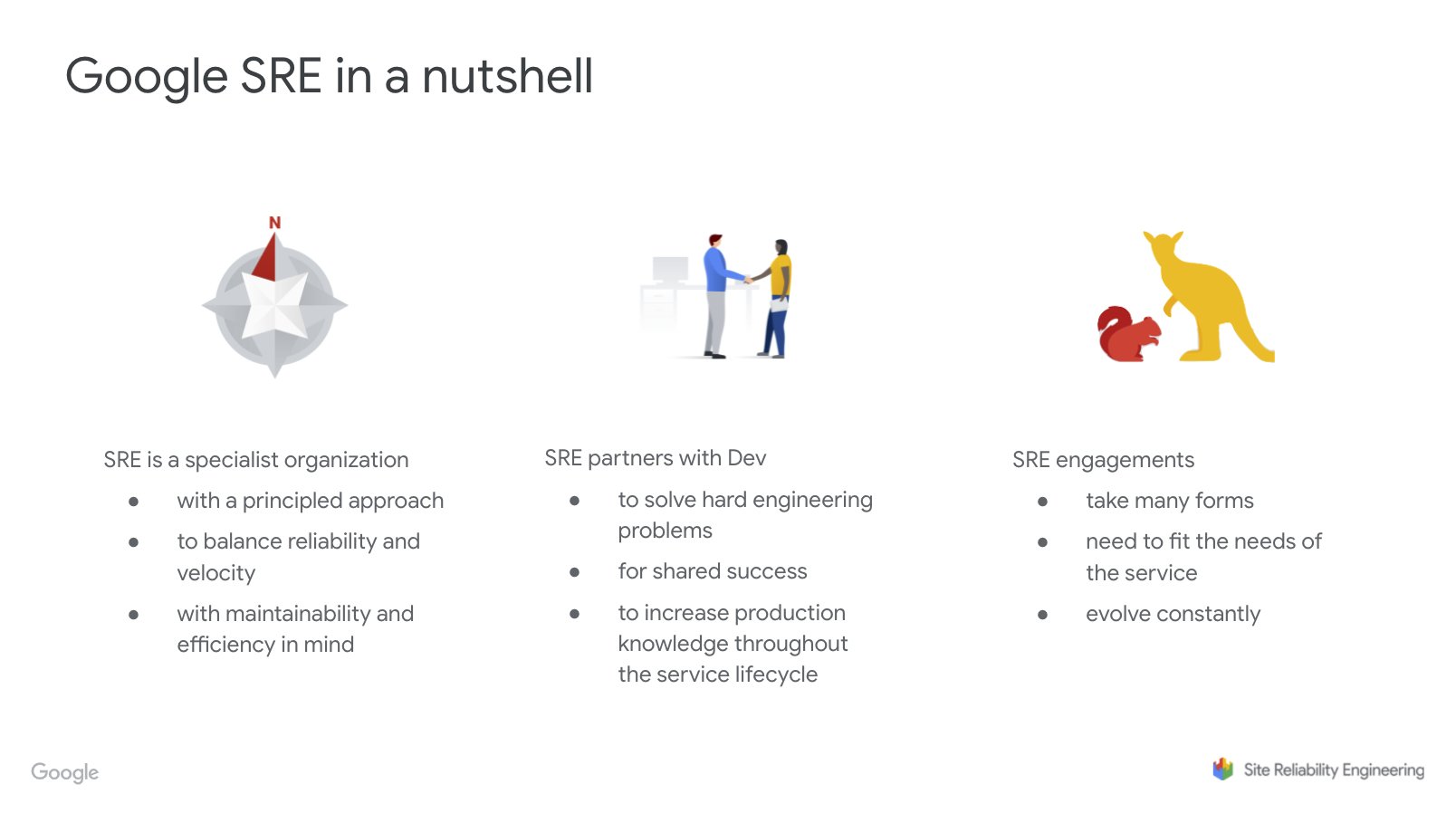
- Shared reliability collab model @ booking.com: A very neat walk through of a model of managing production that involves dev teams and ops.
Process
- Cut Out Time Estimates on Roadmaps: Get Into a Product Delivery Rhythm: Product delivery process used at Honeycomb. Tight deadlines for most things are de-emphasized a bit it seems. Work is picked up in chunks of varying size and progress updated at regular cadences (the idea is with this kind of process spending time drilling into trying to figure out exactly how long something will take to complete is a fool’s errand):
- yearly - The roadmap is updated yearly but often changes. Headings are: in progress, next and planned
- quarterly - OKRs. Much more likely to be happening. Company aligns around these ideas. Not necessarily specific at this level.
- 6 weeks - Things get real
- 2 weeks - Updates provided broadly about what has changed since last time by functional area
- weekly - 30m demo days to show off work in progress
- daily - Team syncs. “Keep talking about the work and make sure everyone’s got the plot”. I like this language!
Project Management
Signs that a project is struggling
- Analysis paralysis
- Burn out
- Production health (# of incidents)
- Little or no progress
- How does the team feel
- People putting in lots of overtime hours
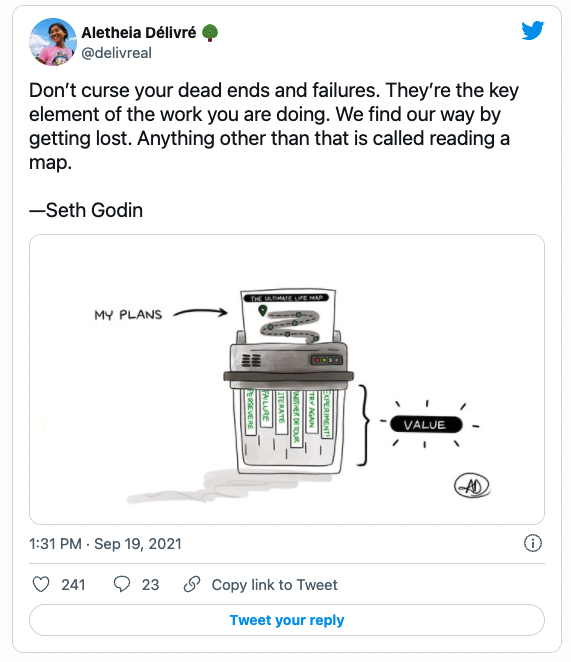
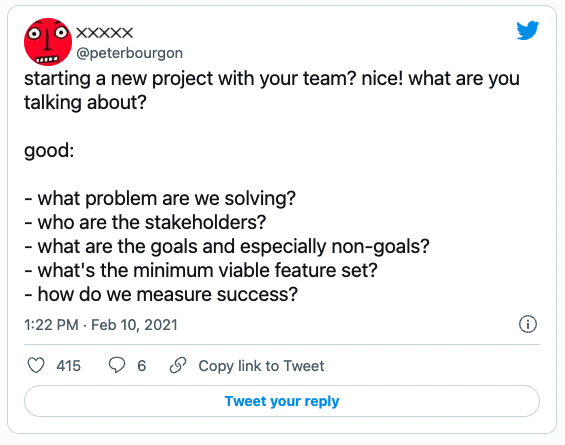
- SMART
- Specific: Know exactly what you’re doing and not doing!
- Measurable: There’s gotta be a real win here with key metrics that you can measure and compare with the previous state of the system
- Attainable: The team can actually do it. (Necessary partners and other assets / resources are in play and can be reached!)
- Relevant: The needle will be moved in terms of what the business is trying to achieve
- Time boxed: projects have to end and should deliver value to make the time investment worthwhile!
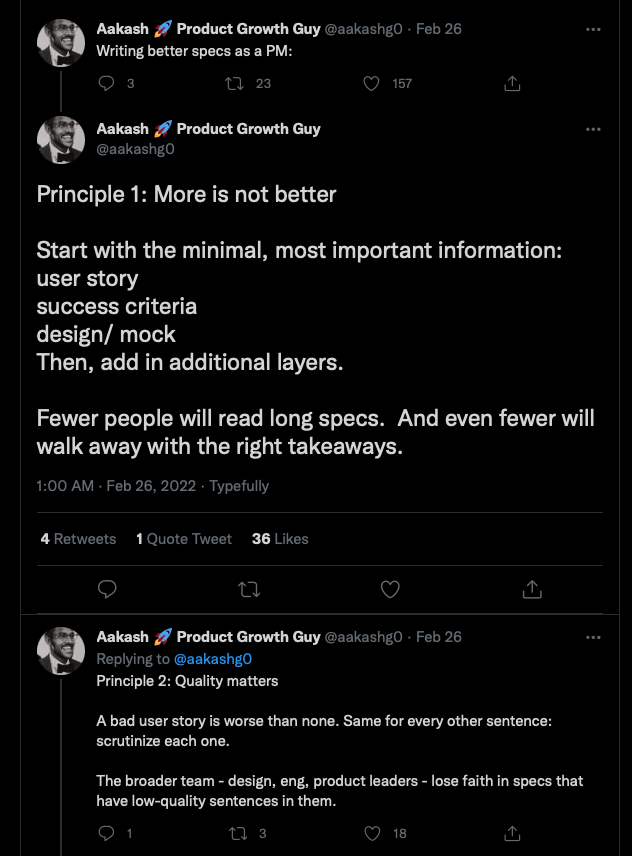
- Principle 1: More is not better
- Start with the minimal, most important information:
- user story
- success criteria
- design/ mock
- Then, add in additional layers.
- Fewer people will read long specs. And even fewer will walk away with the right takeaways.
- An incredible slide deck from a project manager on the Return to Monkey Island game team: So good!
- A link to the gdc talk which was also excellent
- Talk summary : Gain production insights from Return to Monkey Island’s lead producer, Jenn Sandercock, about the two-year development cycle, working with an iconic IP, and building a no-crunch, fully remote team of 25 people in absolute secrecy. Learn the skills that allowed Return to Monkey Island to be completely playable within the first four months of development and the iterative process that followed.This talk is not a postmortem. It’s a shipload of production-focused tips and techniques in small, digestible, rapid-fire, and actionable nuggets. All the tips will come with detailed, concrete examples of how we implemented them. Jenn will share internal Notion databases of tasks and art assets, cutscene pipeline details, meeting essentials, remote team building ideas like watercoolers, and more.
My 1-pager template I like to fill in for new projects (rfc)
- About (What)
- Problem (Why)
- Goals
- Success Criteria
- Non-goals
- Notes
Growth
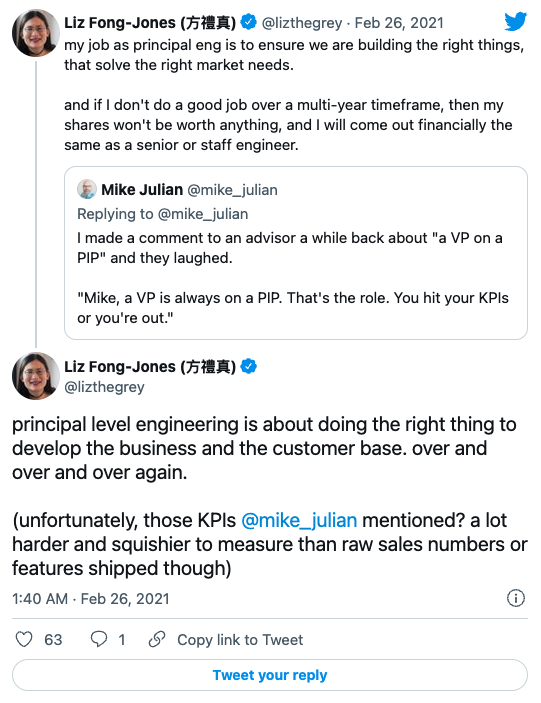
1 on 1s
Some questions I’ve found revealing in the past:
- What’s on your mind? is a good starter. It’s open ended. It lets the other participant lead with anything they’re thinking about.
- How do you like your work to be recognized? Publicly, privately, within the group?
- What’s your favourite pastry? Nice little ice breaker and gives you an idea of something to bring in for the team at some point. :)
Stuff to ask once or twice a year:
- How would you like to grow in your skills, job, career?
- Are you feeling a sense of purpose in what you’re doing?
- What are we doing as a team / company that you think could be improved?
- What are we not doing?
Other 1 on 1 truths
- If there’s nothing to say that’s find too. Just agree to skip this time and reconnect for the next
Are 1-1’s a waste of time?
- They’re not a status update. You have other places to get project status. They’re time for your direct report to talk goals, feedback and mid- long- term things
- The direct report should own the agenda. You can share a doc of past topics but if there’s nothing to say it’s ok to cancel
- Good questions start conversations
- How do you think that went?
- What will you do differently next time?
- What’s the consequence if we don’t do that?
- What other approaches have you tried?
- It’s ok to be light and casual sometimes (Don’t have to always be heavy!)
UI/UX
Adding a few of my favourite links for UI related concerns for now
- Designing for different states in the UI
- Hick’s Law: Time to make a decision vs complexity of choices to choose from
- A note on inclusion in design from the apple human interface guidelines
Devtools
Things a developer tooling engineer may find themselves involved in:
- Fully automated developer onboarding and local developer environments
- Comprehensive documentation strategies, testing strategies
- Building out Progressive Delivery as a capability - ability to rollback deploys, deploy feature flags, and drive feature flag driven development
- Build system performance improvements and reliability improvements
- Roll out a comprehensive philosophy and approach to observability, including (but not limited to): cost consciousness, performance, distributed tracing in production and CI
- Finding one cross-functional collaboration point, automate aspects of it, and reduce friction there
- Nothing says “I know how to improve things where it actually hurts” like bringing more visibility into tickets and making it easier to open and close them
- Find a new project a team is about to do, sit in on planning, and take notes. Look for opportunities to notice when multiple teams are trying to solve the same problem, and bridge that communication gap.
Logging
Try to learn as much as you can about request processing system and related systems. After a request returns, it’s too late to get this kind of insight about a request …
public GetProductInfoResponse getProductInfo(GetProductInfoRequest request) {
// Which product are we looking up?
// Who called the API? What product category is this in?
// Did we find the item in the local cache?
ProductInfo info = localCache.get(request.getProductId());
if (info == null) {
// Was the item in the remote cache?
// How long did it take to read from the remote cache?
// How long did it take to deserialize the object from the cache?
info = remoteCache.get(request.getProductId());
// How full is the local cache?
localCache.put(info);
}
// finally check the database if we didn't have it in either cache
if (info == null) {
// How long did the database query take?
// Did the query succeed?
// If it failed, is it because it timed out? Or was it an invalid query? Did we lose our database connection?
// If it timed out, was our connection pool full? Did we fail to connect to the database? Or was it just slow to respond?
info = db.query(request.getProductId());
// How long did populating the caches take?
// Were they full and did they evict other items?
localCache.put(info);
remoteCache.put(info);
}
// How big was this product info object?
return info;
}
RFCs
Sample template to discuss in writing about an important technical decision in front of me. Decisions are important when they impact others or are hard to reverse. They’re a way to share knowledge and get feedback. Another benefit is all team members are able to participant in a process that’s open. (Junior, senior, coop, new, old, … :))
- Background
- is an rfc appropriate for what i’m trying to do? (it’s a heavy-ish process)
- note: this is a team decision - i’m opening up the process to everyone and my favourite idea might not win. that’s ok! getting other points of view into problems that need the extra scrutinity is well worth it
- what is the problem we’re trying to solve
- think about the motivation
- did anything happen recently that specifically triggered a need here?
- is an rfc appropriate for what i’m trying to do? (it’s a heavy-ish process)
- Requirements
- think about 2 or 3 things that must be true after this work is done
- Potential approaches with tradeoffs
- there are usually a couple of ideas i’ve considered when i think about a problem - what are they?
- every design has pros / cons - be upfront about them
- Proposed solution
- highlight which way i’m leaning and why
- Decision
- document the teams choice
- some rfcs may not be adopted and that’s fine
- a decision might be to defer or drop
- Open questions
- there are often things we don’t know or understand at this stage


